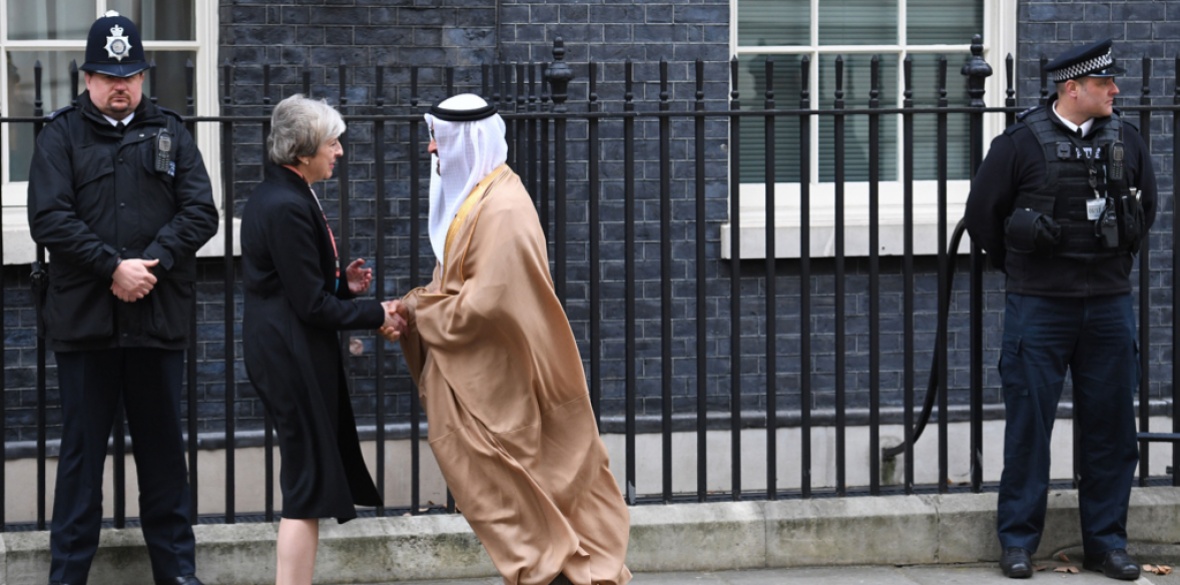This 13 July 2019 video from the USA says about itself:
House Passes Bill to Halt US Support for Yemen War, UAE Withdraws Troops
The war in Yemen could end, if U.S. and United Arab Emirates’ support for Saudi Arabia’s war in Yemen is truly over. However, the House NDAA bill still faces a major hurdle in the Senate. If those who want US military involvement to end pressure Congress, it can be done, says CodePink‘s Medea Benjamin.
U.A.E. Pulls Most Forces From Yemen in Blow to Saudi War Effort: here.
‘Most forces’ unfortunately is not yet all forces.
If all UAE forces would withdraw from the Yemen war, that would be the end of their sexual torture prisons for Yemenis, run jointly with Saudi forces and United States forces.
It would also be end of UAE parents having to mourn as their conscript sons come home in coffins.
From TRTworld.com:
Is the UAE pulling out of the Yemen war?
4 July 2019
Reports about a military drawdown come at a time when the UAE is deeply involved in the complex conflict and faces global scrutiny over its role.
In the last few days, two international news organisations have reported that the United Arab Emirates (UAE) is drawing down troops from Yemen.
First reported by Reuters and then by The Wall Street Journal (WSJ), the stories based on anonymous western diplomatic sources say UAE soldiers are being called back to strengthen security at home as tensions rise in the region between the United States and Iran.
The UAE, they say, is also under pressure by European and American politicians who are angry over the humanitarian disaster in Yemen’s prolonged war.
But neither the UAE nor its Yemeni proxies have officially acknowledged any military withdrawal.
…“Reports that UAE is withdrawing its forces from Yemen should never be understood as a sign of UAE completely ending their fight in Yemen war and becoming fully interested in finding a political solution to the conflict”, says Afrah Nasser, a Yemeni-Swedish journalist. …
On the ground, especially in southern Yemen, the UAE has been more active, funding and controlling different militias including Colombian mercenaries with the ostensibly stated aim of ‘fighting Al Qaeda’.
However, multiple reports over the years have come out that say that the UAE often arms and pays militants for its own purposes.
“They didn’t come here to fight extremist groups”, says Albukhaiti …
“Al Qaeda is running freely in areas controlled by the UAE and the coalition. The only place where the group is not active is under the control of Houthis.”
In a report last year, Amnesty International said there were dozens of cases where people were tortured in secret prisons run by UAE-backed forces.
Nasser, who is also the editor of Sanaa Review, says UAE runs a paramilitary force known as the ‘The Security Belt’ that is outside the rule of … the Saudis …
“So, even if the UAE decreased its forces, it still has a huge security apparatus across southern Yemen.” …
However, for the locals, the distrust runs deep.
“Dubai was in control of the Aden port for years, and they destroyed it,” says Albukhaiti.
Yemen signed a contract with [UAE] DP World to run the Red Sea port in 2008 but cancelled it a few years later saying Dubai’s port operator had not met the investment commitment.
“That is why they focus on the south; they are interested in the Socotra Island, they want to control the coast”, says Albukhaiti.
Whatever the geopolitics of the conflict, it has taken a heavy toll on the Yemeni people.
Homes, farms, shops and schools – all have been attacked since the poorest country on the Arabian peninsula descended into chaos.
Depending on which source you pick, between 7,000 and 68,000 people have been killed in the war, many in relentless Saudi air raids, which have at times hit unsuspecting civilians during funerals and weddings.
The NGO Save the Children estimates that 37 children have been killed or injured on average every month last year in bombings from air raids.
That’s on top of what it reported earlier about the 80,000 kids who died because of malnourishment between 2015 and 2018. …
Over the years, the Saudis have violated international humanitarian law by using excessive air power, according to the UN.
Last month, a court in the UK ruled that that government’s deal to sell billions of dollars worth of weapons to Saudi Arabia was illegal as the weapons were being used against civilians.
Earlier, the government of Morocco stopped participating in the Saudi war.
It would be good if Sudan would also withdraw its soldiers, mostly child soldiers sent there by dictator Bashir, from Yemen.













